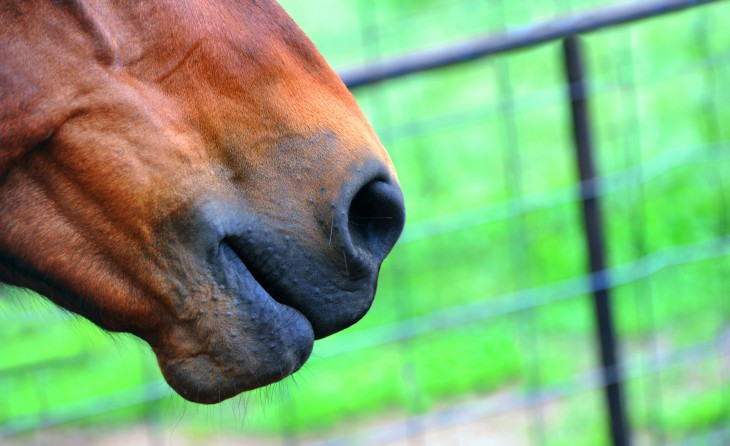Respiratory diseases can be costly for the horse owner/manager in many ways. Some respiratory diseases may cause abortion, and the expense of veterinary care associated with respiratory disease can be significant. Early detection of respiratory disease is important for successful treatment and to minimize days lost in training, racing, showing or poor performance, which often is the greatest cost. Developing a management plan to minimize the risks of respiratory disease as well as to facilitate early recognition of these diseases requires a good general understanding of these diseases. It is important to understand that with current knowledge and available prophylactic procedures, it is impossible to completely eliminate respiratory diseases from our horses. Instead, we should endeavor to decrease the incidence and severity of these diseases, thereby decreasing the associated costs.
The major categories of respiratory diseases affecting horses are infectious (those caused by viruses or bacteria), allergic and parasitic. The most important viral respiratory diseases affecting horses are equine herpes virus, equine influenza, equine viral arteritis, and rhinovirus. Equine herpes virus and influenza probably cause the majority of viral respiratory diseases seen in our area. However the incidence of rhinovirus infection is unknown. The respiratory system is one of the most accessible body systems for diagnostic testing. Endoscopic examination allows direct visualization of the upper respiratory tract, guttural pouches, trachea, and mainstem bronchi. Indications for endoscopic examination include upper airway noise, inspiratory difficulty, poor exercise performance, and unilateral or bilateral nasal discharge.
Vaccination does not always prevent respiratory infections in horses, but duration and severity is usually lessened in horses with regular vaccination depending on factors such as the disease and specific vaccine. Vaccines are available for equine influenza, viral rhinopneumonitis, equine viral arteritis, and strangles. The cost and hazards of each vaccination must be weighed against the probability of exposure and potential disease. Vaccination recommendations and schedules will vary according to the use of the horse and its potential for exposure to contagious animals.





